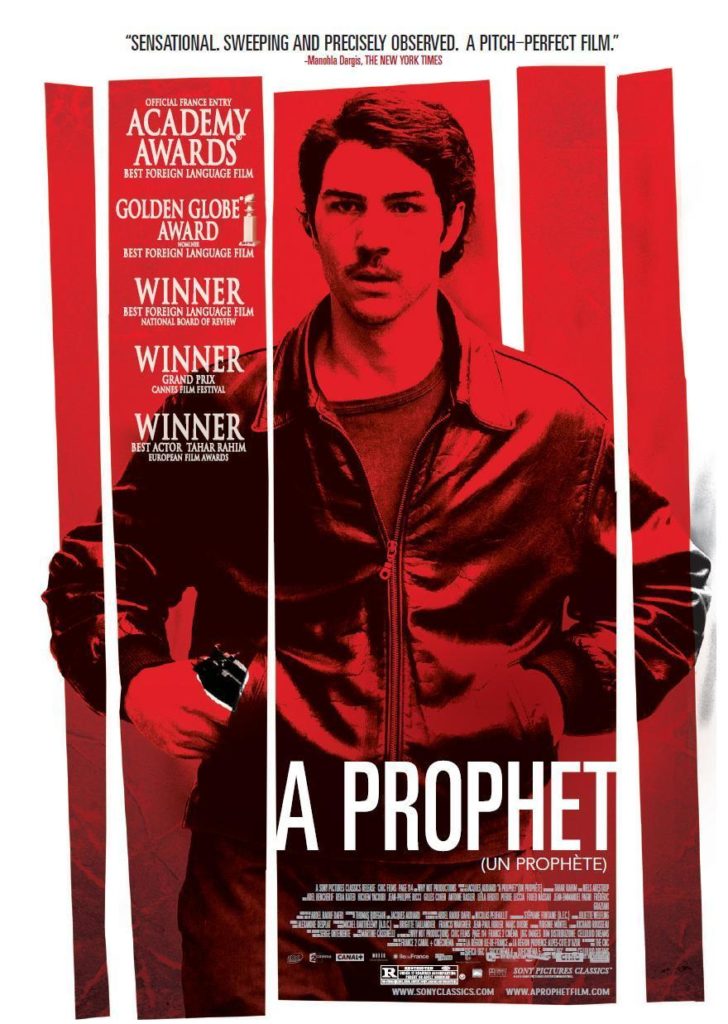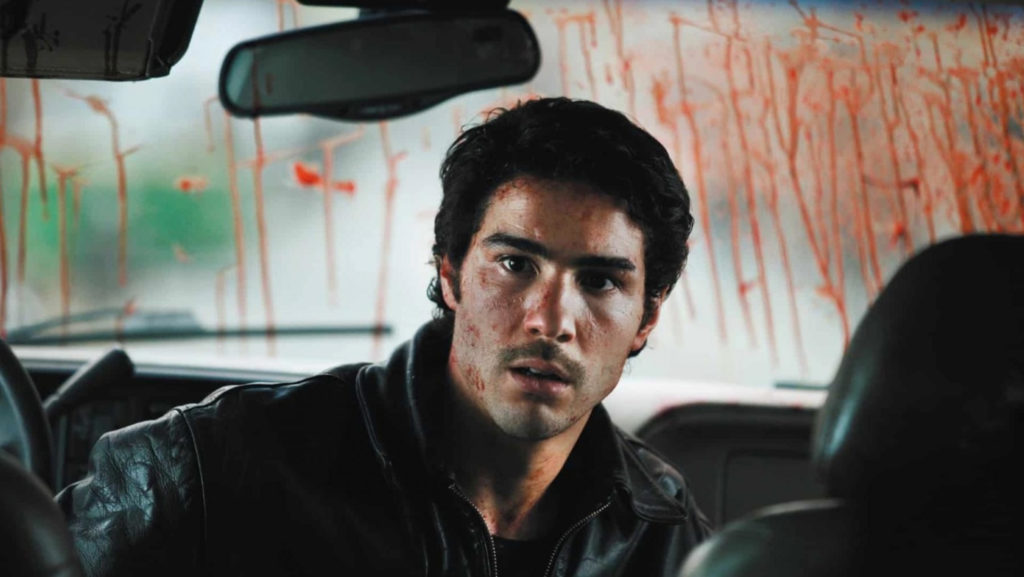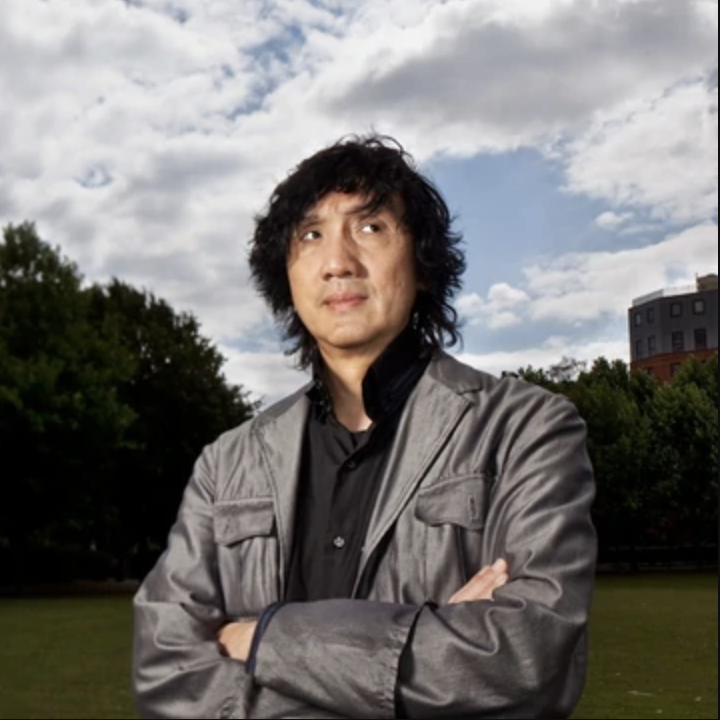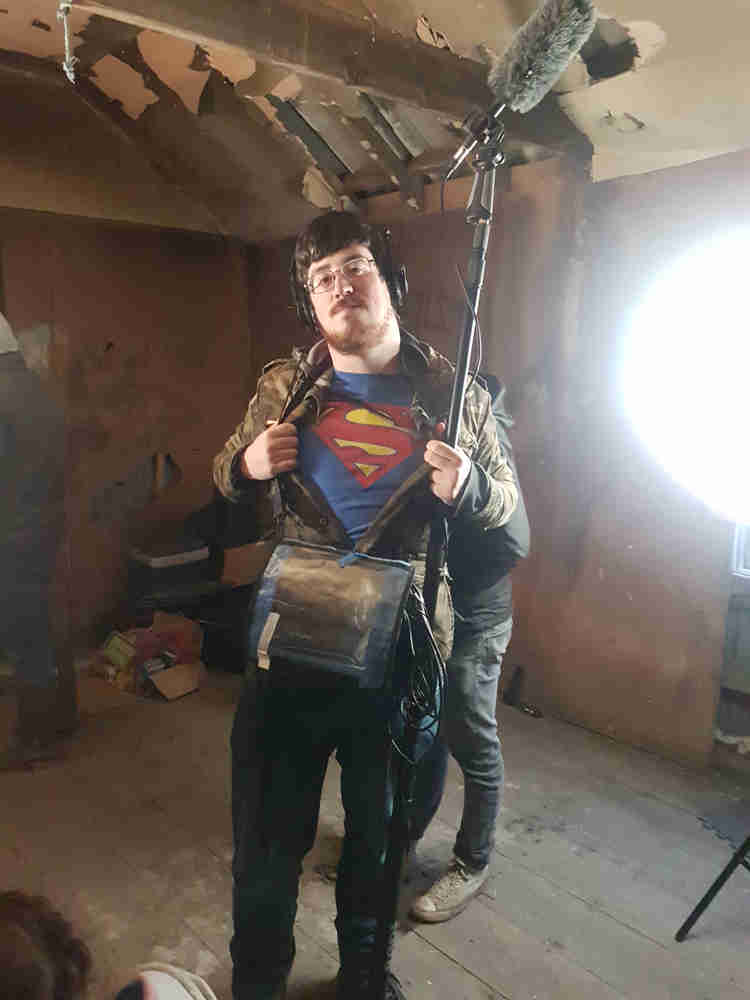By Christopher Roberts
Each month sound recordist and film buff Christopher Roberts talks to one of our members about ‘Their Favourite Film’
CHRIS : Hi Again to another ‘Their Favourite Film’ blog post. This time we have someone I got to meet at the March networking meet up : Hi Ching. What I can say about Hi Ching is that he is a man of many talents. Actor, musician and artist director of events and out door performances; he is a man who definitely likes to keep himself busy. He is also the Creative Director for The Thurrock Film Festival, which been going on since 2018 and now for the 4th time will be happening in August 26th -29th. So make sure to book a ticket, and while you wait for the festival to come along, enjoy reading this month’s post as Hi and I talk about a French award winning classic that takes a brutal look in the prison system.
HI CHING – A PROPHET (2009)
HI : A favourite film – that’s always a tricky one. I find it hard to decide on any one. My favourite film changes depending on my mood. Jacque Audiard’s French film, A Prophet, portraying the barbarity of the powerful, resonated strongly with me at the time of writing this. Malik, played by the astounding Tahar Rahim, with raw charisma, is jailed in a French prison and quickly falls under the rule of a brutal Corsican. For me, this situation keenly reflects Putin’s attempts to crush Ukraine. A film of such brutality is always hard to watch, but the metaphor of survival in times of such human savagery is stunningly filmed in A Prophet. A young man of French North African origins, finding himself in prison after assaulting police officers, wishes only to serve his six-year sentence unscathed. However, prison does not offer such luxury. He finds himself quickly targeted as a pawn by Corsican inmates who run a criminal racket with corrupt prison officers.

The screenplay by Audiard, with Thomas Bidegain, Abdel Raouf Dafri, and Nicolas Peufaillit, is tautly penned. It lays bare the grim realities of how prison inmates have to negotiate the realities of power games to live from one day to the next. Close camera shots expose the innermost hazards the characters have to endure; finely paced edits keep the adrenaline pumping; the austere cinematic grading intensifies the relationships between the actors and Alexandre Desplat’s evocative soundtrack charges the scenes with atmospheric suspense.
Layers of subtext provide a rich depth to this film as we trail the lonely journey of Malik. Illiterate and with no family of his own, he starts with a naïve grasp of life and ends up learning to read and write. In the process, he acquires the wisdom to manipulate the forces of the underworld that seek to harm him. His scars, etched without and within, mark him, shape him and push him way beyond the boundaries of morality as he is forced to endure cliff-hanging moments. So close is the knife-edge between the themes of good and evil and the stark choice of life or death that they merge into an enigma of reality where ambivalence of who wins and who loses is key. Crucial for Malik is how he can remain alive in such a treacherous world.
The film, first shown at the Cannes Film Festival in 2009 where it was awarded the Grand Prix, also won Best Film at the London Film Festival, the Prix Louis Delluc, and a BAFTA for Best Film Not in the English Language. It won 9 Césars including Best Film, Best Director, Best Actor, Best Supporting Actor, Best Original Screenplay, and Best Cinematography.
My THOUGHTS
CHRIS : This was an intriguing film for me to watch and gave me a lot to think about. I enjoyed watching it due to the outstanding performance from Tahar Rahim as Malik and some intriguing experimental shots that you would not see in American films. However, Hi has already given a great detailed talk about all of that, and I instead would like to talk about what the director was showing us. The harsh and brutal reality of what it’s like in prison, such as this one. How, despite its intent to rehabilitate prisoners, it cannot save them all and this is true for our protagonist Malik.
When we first meet Malik, we learn a couple things quickly; one is that his arrested for an assault on a police officer, showing violence but nothing too extreme, as he soon mugged for his shoes, showing that the assault might only have been a minor one. He also has difficulty reading, writing and maths. Like most prisons, it’s a place designed as a chance for Malik and others to rehabilitate and become better members of society once their leave. As we watch the film, we see this happen as he receives a proper education. However, unfortunately, like so many people who are sent to prison, it is also a decline, leading down a dark road forcing them to do anything so they can survive. In this case, for Malik, it was murder.

While the murder was brutal and maybe hard to watch for some people, I found the preparation for it more disturbing. We watch as Malik is forced to learn how to get close to Reyeb (in the biblical sense) and how to hide a blade in his mouth, all so when the time is right, Malik can strike while his guard is down. As you watch this, you slowly see what innocence he had left slip away. You can argue that Malik had no choice. Sure he tried not to do it and haunted by it, his guilt transformed into a ghostly Reyeb who haunts him as a reminder of what he did, but is just one step down the dark road. It isn’t long before he does more terrible things that soon any innocence he had in him when he first enters the prison is now gone once he leaves. I’m not saying that this is the same for all prisoners; a lot has become better when they leave, but due to the harsh conditions of the prisons and the unfair treatment that some prisoners face, it is a long and brutal journey to do so. In Malik’s case one he fails at in the end.
One last thing about this film that hit me differently is that it reminded me of my grandfather. When I was young, he was sent to prison, and some of my earliest memories of Grandad were visiting him with my mother while he was in prison. I only remember snippets, going through security to enter a large room with a dozen tables, the play area where me and the other kids use to play in and the snack bar where I could get sweets. After he was released,
he never talked about his time there, and I never asked about it; now it’s sadly too late to know anything about it as he passed away roughly ten years ago. However, watching this film brought back the memories of visiting him, and it made me question whether or not it was any different for him. Did he have to face issues like Malik did and make hard decisions to survive? He probably didn’t have to do anything as drastic as Malik had to do and thankfully, he had me and my family to be there for him while Malik had no outside friends and family so was left on his own to the wolves. There is a difference but also similarities and for other prisoners there are no differences, and these people can become worst then there were once before. Its a lot of thinks about honestly and in the end that what Jacques Audiard was trying to do and very much succeeded at.
my favourite fact
To ensure authenticity, the director hired ex-convicts as advisors and to be extras during the filming.

Hi Ching is a producer, actor and Creative Director of Thurrock Film Festival.

Chris Roberts has worked on many film projects across Essex as a boom operator and production assistant. Chris is a full time film trivia expert!
